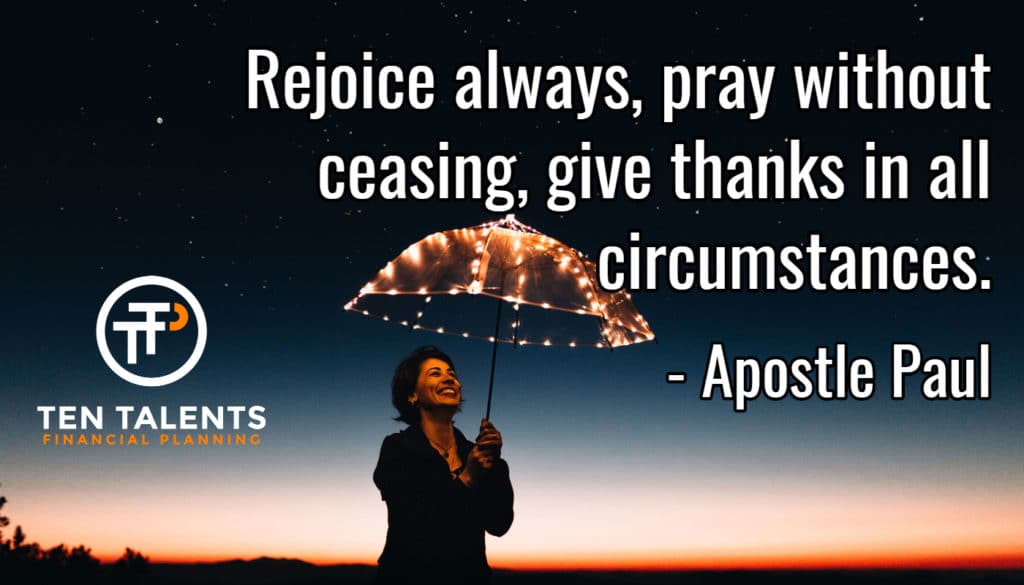
Guiding Principles Series – Principle 7 – “We believe in the pursuit of contentment”
Welcome to the Ten Talents Guiding Principles series! This article dives into Guiding Principle #7, “We believe in the pursuit of contentment.” If you haven’t read the Introduction to the Guiding Principle series, you can check it out here.
What are you looking forward to?
Have you ever looked forward to a date on the calendar? Have you ever been waiting for a very long time for a special event? Or have you ever saved and saved for an item over many months or even years while excitedly looking forward to the purchase? If you have, you may have experienced an odd feeling of letdown or feeling underwhelmed after the date or event passed.
In particular, you may have noticed that the item you spent so much time saving and looking forward to purchasing didn’t necessarily make you feel as great as you thought. Sure, there’s an initial rush that accompanies any long-awaited purchase or date on the calendar. But after that passes, there’s too often a feeling of letdown or dissatisfaction. Once the date passes or the purchase is over it’s typical to start looking for the “next thing”. Is there any cure for this? Any way to help make purchases and financial decisions more satisfying?
Higher spending does not equal greater happiness
What if I told you that the key to satisfaction with money was not in spending and increasing your lifestyle status? Sounds counter intuitive right? All of the images we see of opulent wealth and higher levels of lifestyle luxury are invariably associated with personal happiness and enjoyment increasing, not decreasing! But through countless personal testimonies and data-driven white paper doctoral studies, it’s clear that higher spending does not equal increased happiness or greater personal enjoyment of life. So what is the answer?
The contentment concept
We seek to advise clients how to relate to money as a means rather than an end to itself. This involves asking “why” questions but also introducing the concept of contentment. Now, you may be thinking of contentment as a term for the poor or lower income portion of society who has to pinch pennies to get by financially. But that definition and context could be nothing farther from the real meaning of contentment.
The contentment concept we seek to introduce is a deep, inward satisfaction and pleasure with what is already one’s own. As you may already notice through that definition, contentment and gratitude are closely linked. What we find in talking to clients about money decisions is that if we can frame decisions with a backdrop of contentment and gratitude, we start to allocate dollars more wisely and more enjoyably. In this sense, contentment is about finding true joy and meaning. Once you realize that your personal happiness is independent of your physical possessions, you experience a mental shift. A shift away from anxiety and towards financial freedom.
– Kaleb Paddock, CFP®
You can learn more about how Kaleb, a financial planner based in Parker, Colorado, helps families live life well, here.
This is part 7 of 7 of the Ten Talents Guiding Principles series. To learn more about the Guiding Principles series, please check out the Introduction here.

Planning ahead for retirement?
Get the 7 Essentials for Successful Investing in Retirement.
